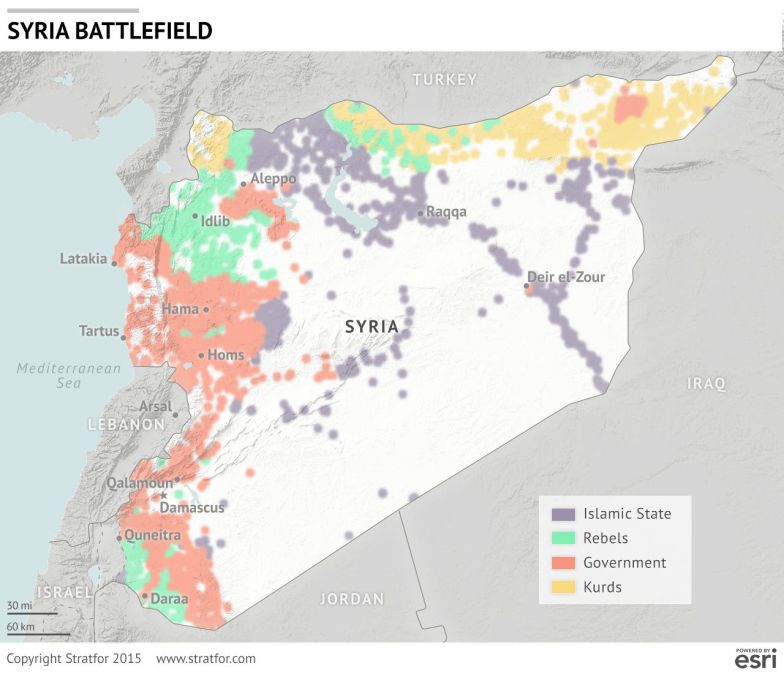
In a notable breakthrough in negotiations over the weekend, the International Syria Support Group agreed during a meeting in Vienna to convene Syrian government and opposition representatives on Jan. 1, 2016, in formal negotiations under the auspices of the United Nations. The support group, made up of virtually every direct and indirect foreign state participant in the Syrian civil war, has aspired to find a solution to the destabilizing Syrian civil war, and progress has increasingly appeared to be within reach. However, serious obstacles remain that could rapidly undermine any gains the group hopes to accomplish going forward.
The current timeline for the peace plan agreed to by the International Syria Support Group is as follows: By Dec. 14, the group will reconvene to review progress so that the United Nations can seek to convene Syrian government and opposition groups in formal negotiations by Jan. 1, 2016. By May 14, 2016, a cease-fire between Syrian government and opposition groups will come into force, allowing the process for drafting a new constitution to begin. Finally, by May 14, 2017, U.N.-administered free elections will be held under the new constitution, ushering in a new government and, hopefully, bringing an end to fighting in the country.
The International Syria Support Group's aim is to get the foreign state participants in the Syrian conflict to reach an agreement on a solution to the country's civil war that would then be presented to the Syrians. The Washington Post reported that to facilitate the cease-fire, actors in the International Syria Support Group will stop all support and supplies to "various belligerents" on both sides once negotiations are underway.
Despite the latest initiative's ambitious goals, it is still unlikely that the plan will result in an effective end to the conflict. Ultimately, Russia and Iran are not entirely committed to ensuring Syrian President Bashar al Assad's personal leadership of Syria as long as their interests are met, but stepping in to convince al Assad to leave power — let alone successfully doing so — is a step both Tehran and Moscow would only take when they are truly confortable with the talks' progress. But at this stage, the obstacles that still lie ahead make getting there as distant a prospect as ever.



